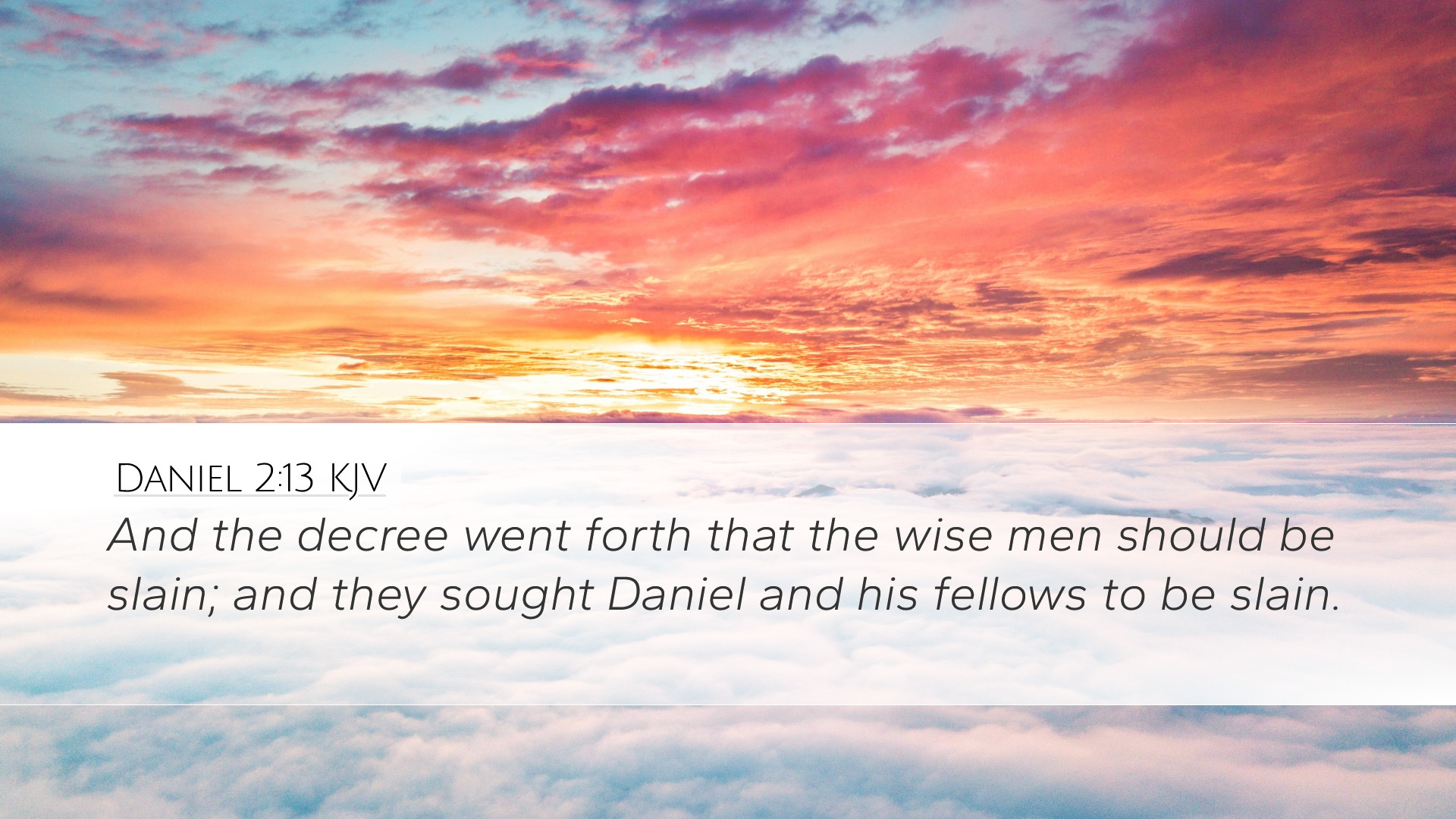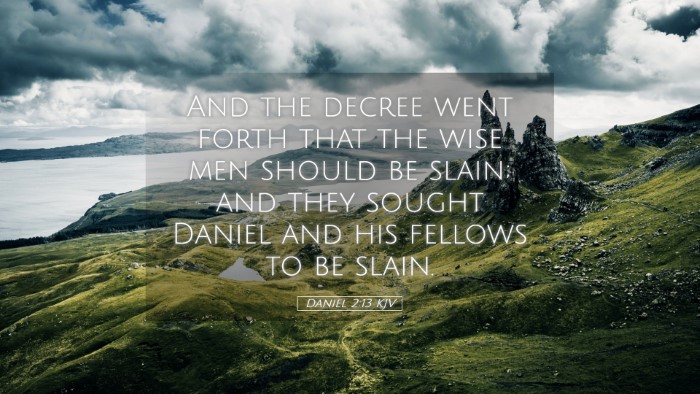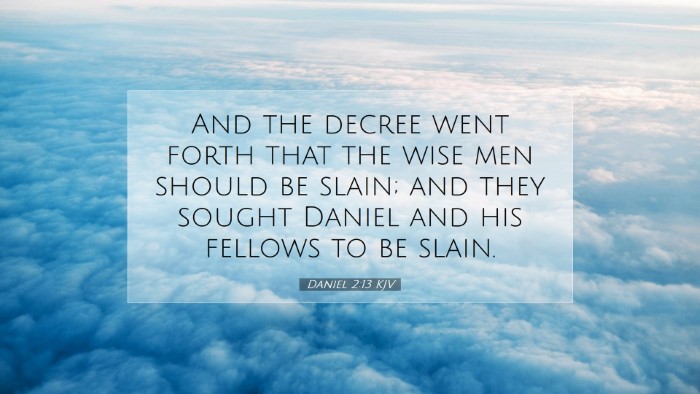Commentary on Daniel 2:13
This verse reads: "And the decree went forth that the wise men should be slain; and they sought Daniel and his fellows to be slain."
Context and Background
To grasp the significance of this verse, it is crucial to consider the broader context of the second chapter of Daniel. The Babylonian king, Nebuchadnezzar, had a troubling dream that he sought his wise men to interpret. However, the king demanded that they first tell him the dream itself, a task that seemed impossible. When the wise men could not comply, a decree was made for their execution.
Insight from Matthew Henry
Human Insecurity: Matthew Henry suggests that this event illustrates the instabilities in the realm of earthly kings and their advisors. The decree to kill the wise men epitomizes the desperation and harsh measures of Nebuchadnezzar's rule. Here, Henry notes how these moments reveal the weaknesses of human wisdom when faced with supernatural revelation.
God's Sovereignty: Furthermore, Henry emphasizes the overarching theme of God’s sovereignty, suggesting that even in crises, God orchestrates events for His purposes. The impending execution of Daniel and his friends sets the stage for demonstrating God's power and faithfulness through His servants.
Insights from Albert Barnes
Wisdom and Knowledge: Albert Barnes points out the folly of the king's demand for the wise men to reveal not only the interpretation of the dream but the dream itself. Barnes posits that this reflects a significant test of true wisdom; genuine understanding cannot be summoned merely by command. It serves as a reminder of the limitations of human intellect when not divinely inspired.
Consequences of Inaction: Barnes further expounds on the dire consequences faced by the wise men, which highlights the tension between earthly authority and divine insight. The impending death of Daniel and his companions illustrates the severity of the situation, compelling them to seek divine intervention.
Insights from Adam Clarke
The Role of Daniel: Adam Clarke provides a detailed exploration of Daniel's character and his resolve. Clarke explains how Daniel was not among the original wise men but was included in this execution order. This reflects the integrating circumstances of the time in which the faithful must brace themselves against impending peril due to their association with worldly knowledge.
Divine Intervention and Faith: Clarke asserts that Daniel’s eventual response to this crisis is an example of faith in action. His determination to seek the counsel of God rather than fear for his life exemplifies the biblical principle of reliance on divine wisdom. Clarke encourages readers to recognize that while human circumstances may seem dire, faith can provide clarity and resoluteness.
Theological Reflections
This verse encapsulates a moment of profound theological significance. It serves as a reminder that in the midst of crises, God is at work. The panic exhibited by Nebuchadnezzar starkly contrasts the calm assurance that faith offers to believers. The perplexity of the wise men also brings to light the limitations of science and wisdom devoid of divine revelation.
- Human Wisdom is Limited: This scenario reminds us that worldly wisdom can lead to desperation without divine insight.
- God’s Purpose in Trials: The order to slay the wise men becomes a vehicle for God’s providential plan, showcasing His control over earthly kingdoms.
- The Call to Trust God: Daniel’s response is a powerful reminder for all leaders and believers to trust in God’s plan amidst fear and uncertainty.
Conclusion
In Daniel 2:13, we encounter a critical moment that teaches about human folly, the need for divine wisdom, and the sovereignty of God amidst turmoil. As leaders, theologians, and students of scripture, it is imperative to glean from the example set by Daniel and his companions, who, in the face of death, turned their eyes to the heavens, and demonstrated resolute faith in the God who knows all dreams.


